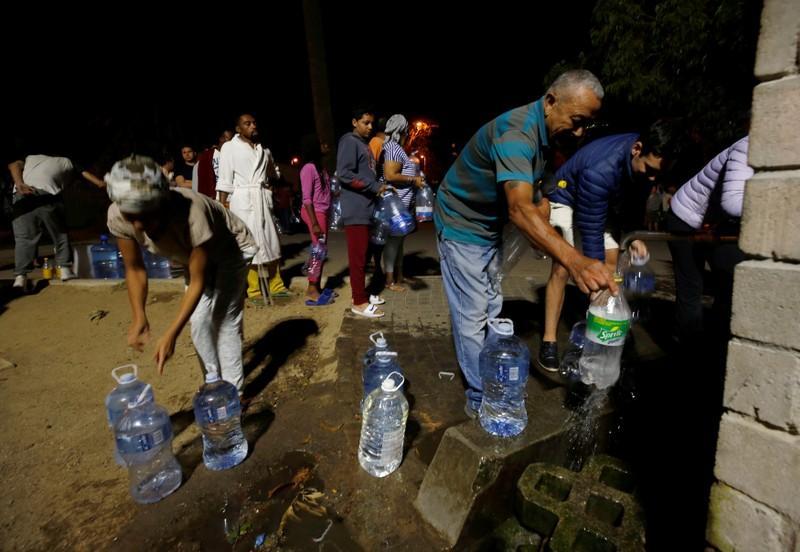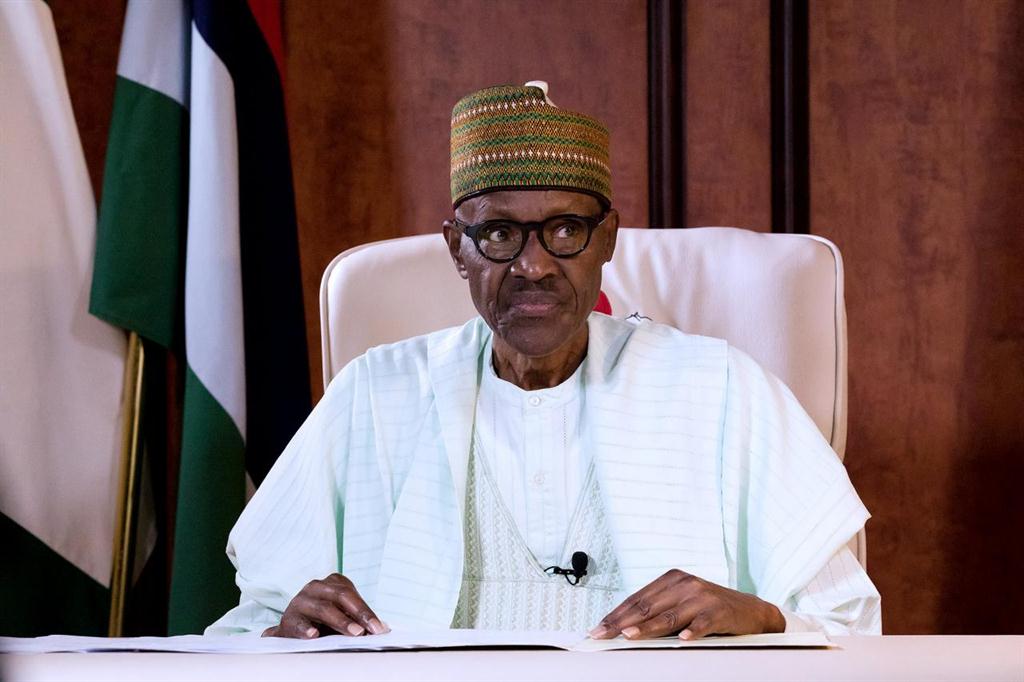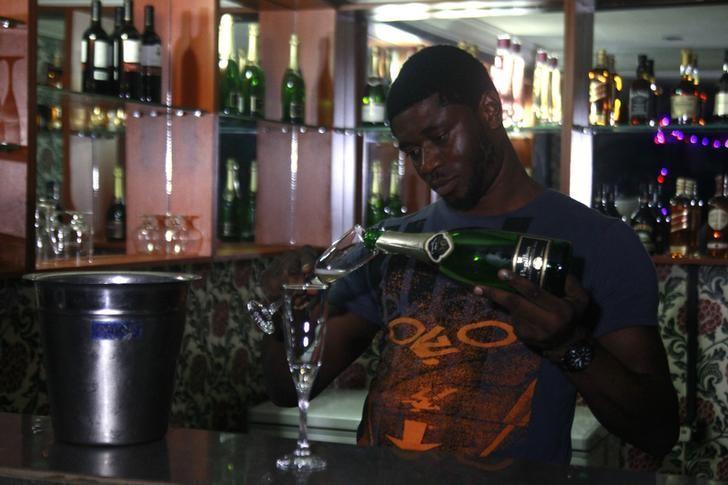African briefs
Zimbabwe gives mines, farmers six months to clear electricity bills
HARARE - Zimbabwe’s state-owned electricity distributor has given businesses, including mines and large-scale farms, six months to clear their bills or risk being cut off and face litigation, the company said on Monday. The Zimbabwe Electricity Transmission and Distribution Company (ZETDS) is owed more than US$1 billion by electricity users, including domestic households, farmers, industries and mining companies.
ZETDC said in a public notice that businesses had six months to clear their bills because it required the money to pay for electricity imports to supplement local generation.
Zimbabwe, which has had stable electricity supplies for more than a year, currently produces 938 megawatts and imports up to 450 megawatts from South Africa and Mozambique.
-Nampa/Reuters
Nigeria increases excise duties on tobacco and alcohol
ABUJA- Nigeria’s President Muhammadu Buhari has approved an increase in excise duties on tobacco and alcoholic beverages, the finance ministry said in a statement on Sunday.
The West African country, which has Africa’s biggest economy, fell into recession in 2016 largely due to low oil prices. It emerged from recession last year, mainly as a result of higher crude prices, and is trying to raise non-oil revenues.
In addition to a 20% tax on tobacco, the government will add an extra fixed tax per cigarette. A percentage tax on alcoholic beverages will be replaced by taxes of fixed amounts based on volume. The finance ministry said the changes will take effect from June 4 this year.
-Nampa/Reuters
Court interdict blocks IPP signing in SA
CAPE TOWN- The signing of 27 independent power producer contracts on Tuesday has been put on hold, after the National Union of Metalworkers of South Africa and Transform RSA managed to obtain a last-minute court interdict.
In a statement on Tuesday morning, Numsa said the interdict prevents power utililty Eskom from concluding the outstanding renewable energy power purchase agreements.
"Numsa believes that the signing of these contracts would be detrimental for the working class of Mpumalanga and the country as a whole. The signing of the IPP means that Eskom will require less coal-fired electricity," the union said in a statement.
-Fin24
Cape Town faces severe economic troubles over drought- Moody's
JOHANNESBURG - Rating’s agency Moody’s warned on Monday the water crisis affecting Cape Town would cause the city’s borrowing to rise sharply and the provincial economy to shrink the longer the situation lasted. A severe drought afflicting South Africa’s Western Cape province is expected to cut agricultural output by 20% in 2018, decimating the wheat crop and reducing apple, grape and pear exports to Europe, according to national government.
The City is bracing for“Day Zero” in late August when its taps could run dry.
Moody’s said in a report that one of the most direct impacts would be on Cape Town’s operating revenues, as 10% of them are from water charges.
-Nampa/Reuters
Local miners still wary of Zimbabwe’s waters
Mark Cutifani, the CEO of Anglo American, described Chris Griffith, his counterpart at the 80%-owned listed subsidiary Anglo American Platinum (Amplats), as “keen as mustard” to explore fresh prospects in Zimbabwe, which has recently thrown its doors open to investment.
But perhaps the mustard is only mild.
Cutifani and Impala Platinum CEO Nico Muller are cautious about how a change of president in Zimbabwe might actually alter policy towards foreign investment.
The initial euphoria after the toppling of former Zimbabwe dictator Robert Mugabe has been replaced by watchfulness in the markets, especially by the mining companies, who have seen it all before.
-Fin24
HARARE - Zimbabwe’s state-owned electricity distributor has given businesses, including mines and large-scale farms, six months to clear their bills or risk being cut off and face litigation, the company said on Monday. The Zimbabwe Electricity Transmission and Distribution Company (ZETDS) is owed more than US$1 billion by electricity users, including domestic households, farmers, industries and mining companies.
ZETDC said in a public notice that businesses had six months to clear their bills because it required the money to pay for electricity imports to supplement local generation.
Zimbabwe, which has had stable electricity supplies for more than a year, currently produces 938 megawatts and imports up to 450 megawatts from South Africa and Mozambique.
-Nampa/Reuters
Nigeria increases excise duties on tobacco and alcohol
ABUJA- Nigeria’s President Muhammadu Buhari has approved an increase in excise duties on tobacco and alcoholic beverages, the finance ministry said in a statement on Sunday.
The West African country, which has Africa’s biggest economy, fell into recession in 2016 largely due to low oil prices. It emerged from recession last year, mainly as a result of higher crude prices, and is trying to raise non-oil revenues.
In addition to a 20% tax on tobacco, the government will add an extra fixed tax per cigarette. A percentage tax on alcoholic beverages will be replaced by taxes of fixed amounts based on volume. The finance ministry said the changes will take effect from June 4 this year.
-Nampa/Reuters
Court interdict blocks IPP signing in SA
CAPE TOWN- The signing of 27 independent power producer contracts on Tuesday has been put on hold, after the National Union of Metalworkers of South Africa and Transform RSA managed to obtain a last-minute court interdict.
In a statement on Tuesday morning, Numsa said the interdict prevents power utililty Eskom from concluding the outstanding renewable energy power purchase agreements.
"Numsa believes that the signing of these contracts would be detrimental for the working class of Mpumalanga and the country as a whole. The signing of the IPP means that Eskom will require less coal-fired electricity," the union said in a statement.
-Fin24
Cape Town faces severe economic troubles over drought- Moody's
JOHANNESBURG - Rating’s agency Moody’s warned on Monday the water crisis affecting Cape Town would cause the city’s borrowing to rise sharply and the provincial economy to shrink the longer the situation lasted. A severe drought afflicting South Africa’s Western Cape province is expected to cut agricultural output by 20% in 2018, decimating the wheat crop and reducing apple, grape and pear exports to Europe, according to national government.
The City is bracing for“Day Zero” in late August when its taps could run dry.
Moody’s said in a report that one of the most direct impacts would be on Cape Town’s operating revenues, as 10% of them are from water charges.
-Nampa/Reuters
Local miners still wary of Zimbabwe’s waters
Mark Cutifani, the CEO of Anglo American, described Chris Griffith, his counterpart at the 80%-owned listed subsidiary Anglo American Platinum (Amplats), as “keen as mustard” to explore fresh prospects in Zimbabwe, which has recently thrown its doors open to investment.
But perhaps the mustard is only mild.
Cutifani and Impala Platinum CEO Nico Muller are cautious about how a change of president in Zimbabwe might actually alter policy towards foreign investment.
The initial euphoria after the toppling of former Zimbabwe dictator Robert Mugabe has been replaced by watchfulness in the markets, especially by the mining companies, who have seen it all before.
-Fin24









Kommentaar
Republikein
Geen kommentaar is op hierdie artikel gelaat nie